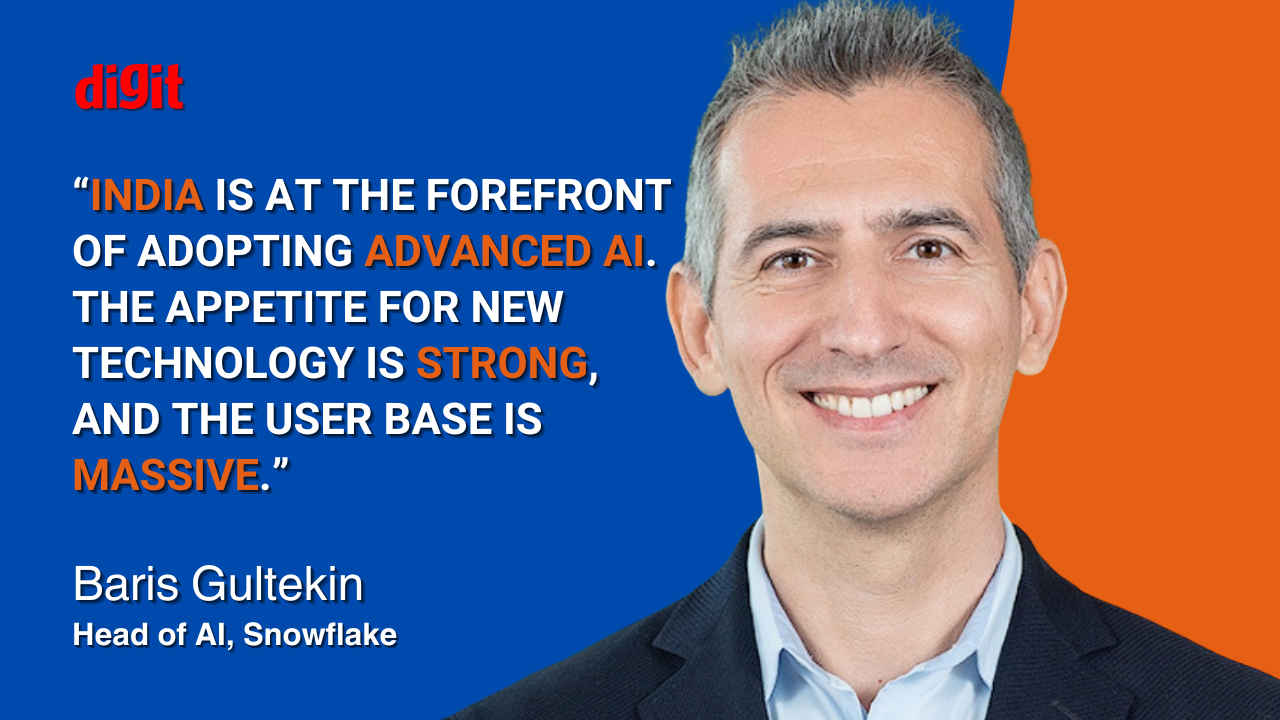Snowflake’s Baris Gultekin believes AI agents are critical for future of work

“We believe agents are the future for enterprises,” says Baris Gultekin, Head of AI at Snowflake. For the uninitiated, Gultekin’s talking about AI systems that do far more than spit out chat-like responses. For these “AI agents” can plan tasks, fetch the data they need – structured or unstructured – and then actually execute multi-step operations in a governed environment.
If that sounds a bit futuristic, well, that’s because it is. But Gultekin insists it’s happening now, thanks to Cortex Agents, Snowflake’s latest offering in what it calls an “AI data cloud” approach.
I caught up with Baris over a quick video call about Snowflake’s new push into the agentic age of AI. He spoke at length about bridging enterprise data with large language models, the complexities of structured vs. unstructured data, and how Snowflake is tackling head-on the problem of “hallucinations” and security lapses that plague many AI projects today.
Also read: From AI agents to humanoid robots: Top AI trends for 2025
“At Snowflake, we see ourselves as an AI data cloud,” Baris begins. “What that means is our customers bring their data – the crown jewels – into Snowflake to secure, govern, and analyze.” If you’ve followed the buzz around AI in the past year, you’ll know the big question is: how do organizations safely run large language models near the data they want to glean insights from? If they have to push that data across random pipelines or third-party services, it undermines security and governance — something that Snowflake’s trying to fix and simplify.
“We focus on easy, efficient, and trusted,” Baris continues, describing Snowflake’s philosophy for enterprise AI. For him, this means a single platform that can handle both structured data (think rows and columns) and unstructured data (like PDFs, marketing material, or policy docs), all while giving users levers to govern who sees what. “In a governed system, trust is really important,” he notes.
The gist is that an AI agent, rather than being a glorified chatbot, can break down a complex query (maybe a five-step request about sales data and appended policy text) into smaller parts, route them to the right data source – Cortex Analyst for structured queries, Cortex Search for unstructured (both of which are Snowflake’s offerings in the AI data cloud) – and then combine results to produce a final answer.
AI evolution: From basic chatbots to autonomous agents
Gultekin underscores how the next wave of AI is bigger than just a fancy chatbot that can write short paragraphs. “We’re seeing two kinds of agents,” he says. One type is a more advanced version of ChatGPT-like assistants. “They can reflect on how to solve a problem, use relevant tools, and verify results before giving you an answer.” The second is “worker agents,” which quietly automate back-office tasks, from analyzing thousands of emails for patterns to triaging complex workflows.
“An example is a data provider that receives thousands of emails. They used to have staff reading these to flag urgent updates. Now they built an agent system and saw a 90 percent reduction in that workload,” he notes. That’s the “quiet brilliance” of an AI agent: it can step into tasks that are often menial but also require a bit of reasoning, saving entire teams thousands of hours.

Part of Snowflake’s pitch is that bridging structured and unstructured data is no small feat. “Actually, answering structured data queries is often harder than unstructured,” Baris points out. He highlights that large language models do fine with open-ended text, but the moment you need them to talk to a database, join multiple tables, and produce an accurate numeric answer, things can fall apart.
“The margin for error is low, especially in business-critical functions like finance or engineering,” he says, acknowledging the fear of “hallucinations” that plague most LLM-based solutions. Snowflake claims it solves that with specialized retrieval systems.
If you’re a typical user, of course it’s easy to write all this off as enterprise jargon – until you realize how these agents would trickle down into the consumer world. Consider an insurance claim scenario, where a user wants to query both structured data (policy coverage, claim amounts) and unstructured (doctor’s notes, attachments). An agent can glean the relevant facts, ensuring you get a single, coherent answer rather than dealing with disjointed phone calls or mountains of PDF scans.
Also read: AI agents explained: Why OpenAI, Google and Microsoft are building smarter AI agents
Baris paints the scenario: “Think of a claims adjuster who typically has to pull data from various systems, then read through unstructured notes. If you have an agent, it can do that in minutes, not hours.” Over time, he predicts, such productivity gains will show up in everyday experiences – like quicker reimbursements or a more transparent breakdown of your coverage.
Asked about how India’s shaping up in AI adoption, Gultekin is bullish. “India is at the forefront of adopting advanced AI,” he says, citing his past roles at Google Assistant and seeing how voice-based and local-language tech took off. “I see India as a key market. The appetite for new technology is strong, and the user base is massive.”
He envisions Indian enterprises leveraging AI agents for everything from BFSI (banking, financial services, insurance) to e-commerce. The complexity of data in these sectors – some structured, some not – makes them prime candidates for a platform that unifies it all under one roof.
A glimpse into our AI future
Looking ahead, Gultekin sees a near future where agent-based automation quietly handles a wide range of tasks behind the scenes, drastically cutting overhead for entire teams. “We believe that many of our customers are already building production systems that rely on agent-based orchestration,” he notes, pointing to large clients like Siemens Energy or S&P Global who’ve integrated Snowflake’s advanced AI features to process millions of records.

“At the same time,” he cautions, “trust is incredibly important. We never want to be reckless. The data needs to be governed. The system needs to produce the right answer, or at least have a confidence measure about it.” So while the illusions of “ChatGPT mania” might suggest overnight transformations, Snowflake’s approach is more methodical, layering AI on top of robust data governance.
“There is no AI strategy without a data strategy,” Gultekin concludes. Indeed, that might be the real headline: AI can’t fix messy data, and an agent is only as good as the pipeline feeding it. For all the hype around generative text or code, it’s still about bridging the gap between what you have and what you want to do with it.
Snowflake’s newly announced Cortex Agents push that logic further, letting dev teams build a single orchestrator that can talk to either structured or unstructured data. “It’s a more advanced version of chatbots – these agents can plan tasks, and reflect on results,” Gultekin says with no small amount of pride.
So is this the final iteration of enterprise AI? Hardly. “Agents are very new,” Baris says. “We’re only at the start of seeing how they’ll streamline existing processes.” But the ambition is unmistakable. An AI that’s more than a toy, that truly “knows” how to unify everything from a bank’s invoice data to a retailer’s marketing library, then churn out verifiable, real-time answers.
As to whether these advanced agents will remain behind corporate firewalls or eventually become standard in consumer-facing apps, that’s an open question. But if Snowflake’s bet is right, your next interaction with a big company’s “AI help desk” might not feel like a token chatbot – it might be a full-blown agent, seamlessly pulling from sales spreadsheets, PDF manuals, and other data sources, all while making sure your personal info stays in the right data silo – always safe and secure.
“We’re excited about it,” Baris says with a laugh. “It’s a big leap from just chat. If we get it right, it could change how entire industries handle knowledge work.” And for all of us tired of rummaging through endless documents, that sounds like a future that couldn’t come sooner.
Also read: OpenAI launches Operator: How will this AI agent impact the industry?
Jayesh Shinde
Executive Editor at Digit. Technology journalist since Jan 2008, with stints at Indiatimes.com and PCWorld.in. Enthusiastic dad, reluctant traveler, weekend gamer, LOTR nerd, pseudo bon vivant. View Full Profile




